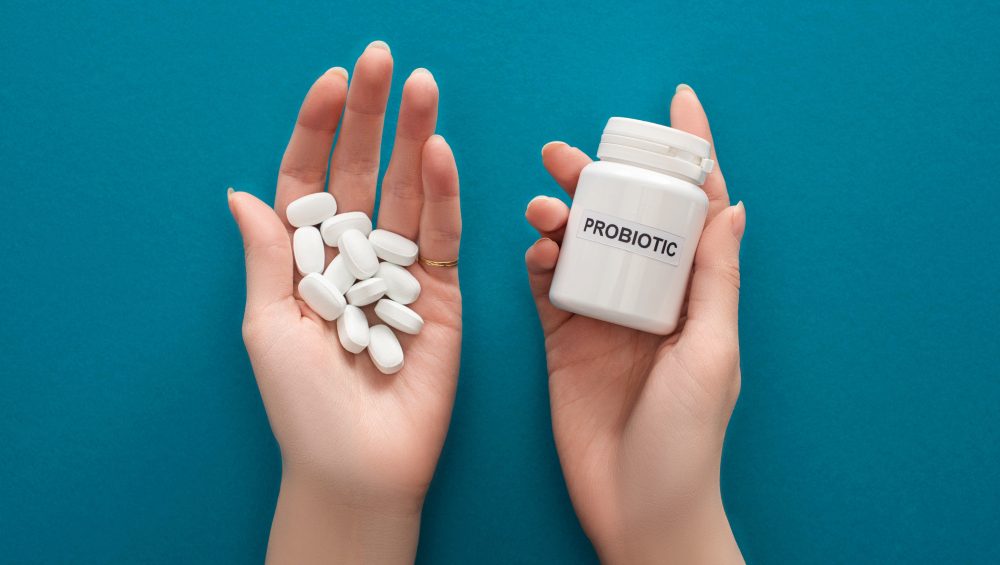Lactobacillus Plantarum: Probiotic Health Benefits And Beyond
When it comes to our health, most of us are happy to take the advice of our doctor and go with whatever they prescribe. After all, they are the experts, right? But what if your doctor is prescribing something that might not be in your best interest? That’s where probiotics come into play. Probiotics are live bacteria that can help improve our gut health and overall well-being, and unlike some other supplements, probiotics don’t have any major side effects.
There are many different types of probiotics on the market, but one of the most popular is Lactobacillus plantarum. This probiotic enzyme can help improve gut health and digestion. Keep reading to learn more about this probiotic enzyme.

What Lactobacillus Plantarum Is
Lactobacillus plantarum is a probiotic enzyme that has a variety of health benefits, including improving digestive health, boosting immunity, and fighting inflammation. For your digestive system to function properly, it needs a balance of good and bad bacteria. Probiotic enzymes, like Lactobacillus plantarum, help maintain this balance by keeping the bad bacteria in check. This is especially important if you’re taking antibiotics, which can kill both good and bad bacteria.
Here are the benefits of taking a probiotic enzyme like Lactobacillus plantarum.
-Improved digestion
-Reduced inflammation
-Better absorption of nutrients from food
-Boosted immune system
-Reduced symptoms of IBS and other digestive disorders
This is how Lactobacillus plantarum helps with digestive issues.
-Breaking down food particles, so they are easier to digest
-Producing lactic acid, which can help kill harmful bacteria and fungus
-Stimulating the growth of good bacteria in the gut
-Preventing the growth of harmful bacteria and fungus
In addition to the benefits listed above, Lactobacillus plantarum has bonus benefits that can help with an assortment of conditions.
-Lactobacillus plantarum can also help reduce the symptoms of anxiety and depression.
-It can help regulate blood sugar levels and improve insulin sensitivity.
-Lactobacillus Plantarum can also help improve cognitive function and memory.
-It is beneficial for skin health and can reduce the appearance of wrinkles and age spots.
This probiotic enzyme starts its work in your gut, but it doesn’t stop there. The benefits go way beyond digestion. It’s a great way to improve your overall health.

Lactobacillus Plantarum Supplements
Probiotic enzymes, like Lactobacillus plantarum, are available in several forms.
-Powders
-Capsules
-Tablets
-Liquid drops
You can find these supplements online or in many health food stores; when choosing a supplement, it’s vital to read the label carefully. Some supplements may not contain the amount of Lactobacillus plantarum that is listed on the label; in addition, some supplements may contain other ingredients that you are allergic to. Probiotic enzymes, like Lactobacillus plantarum, are live bacteria, so it’s important to store them properly. These supplements should be stored in a cool, dry place away from direct sunlight; it’s also vital to keep them away from heat, as this can kill live bacteria.
When taking supplements that contain Lactobacillus plantarum, it’s best to take them with food. This can help reduce the risk of stomach upset. It’s also important to drink plenty of water while taking these supplements. Most people will start seeing results within a few days to a week of taking these supplements. However, some people may need to take them for a longer period before they see any benefits.
The recommended dosage of Lactobacillus plantarum is between one to ten billion CFUs (colony-forming units) per day. It’s best to start with a lower dose and gradually increase it as needed. Some people may need a higher dose depending on their individual health needs. It’s always best to speak with a healthcare professional before starting any supplement, especially if you have a health condition.
There are no specific directions that you need to follow when taking these supplements. However, it’s vital to follow the dosage guidelines on the label. Taking more than the recommended dose can increase the risk of side effects. If you experience any adverse effects while taking Lactobacillus plantarum, stop taking the supplement immediately and speak with a healthcare professional.

Lactobacillus Plantarum Drug Interactions
There are a few drug interactions associated with taking Lactobacillus plantarum. Taking Lactobacillus plantarum along with antibiotics can decrease the effectiveness of the antibiotics, and there is some evidence to suggest that it may also decrease the effectiveness of birth control pills. Immunosuppressants can also be affected, and this supplement may increase the risk of infection.
Talking to your doctor before taking Lactobacillus plantarum is always recommended. They can help you determine if this supplement is right for you. They will be able to monitor you for any potential drug interactions.

Good Food Sources Of Lactobacillus Plantarum
There are a few food sources of Lactobacillus plantarum. Fermented foods, like yogurt, sauerkraut, and kimchi, contain large amounts of live bacteria. Probiotic supplements are another way to get it.
And finally, some probiotic foods like kefir and kombucha also contain Lactobacillus plantarum. Eating a diet that contains these food sources is the best way to get adequate amounts of Lactobacillus plantarum. However, supplements are also an option for people who don’t eat these foods regularly.

Risks And Side Effects
There are a few risks associated with taking Lactobacillus plantarum. Some people may be allergic to Lactobacillus plantarum. These allergic reactions can range from mild to severe. There are also a few drug interactions associated with taking Lactobacillus plantarum. Ask your doctor about how taking it may interact with any medications you’re on.
The most common side effect of taking Lactobacillus plantarum is an upset stomach. However, this is usually only a problem if Lactobacillus plantarum is taken on an empty stomach. So be sure to eat before taking the supplement.
Some people may experience digestive problems, like diarrhea or gas, or discomforts, like fatigue and headache, when taking it. If you suffer an abundance of negative side effects, you should stop taking the supplement and speak to a healthcare professional. Overall, however, the risks associated with taking Lactobacillus plantarum are relatively low.
To further decrease the risk of side effects, start with a low dosage and increase it gradually. Make sure not to take them on an empty stomach and drink plenty of water. You should also talk to your doctor and avoid other probiotics while taking Lactobacillus plantarum.

Getting The Most Out Of It
The very first thing that you should do when taking Lactobacillus plantarum supplements is to read the probiotic label for dosage information. Once you have that, take the supplement as indicated on the bottle. You can either swallow it with water or another liquid; just make sure not to chew or crush them, as this may cause an influx of bacteria and subsequent stomach discomfort.

There are a few things to keep in mind when taking probiotics. If you’re taking more than one type, space them out by at least two hours so they don’t compete for absorption sites in your gut. Store probiotics below 40 degrees F (four degrees C) to prolong their shelf life. If they get too warm, they will die.









